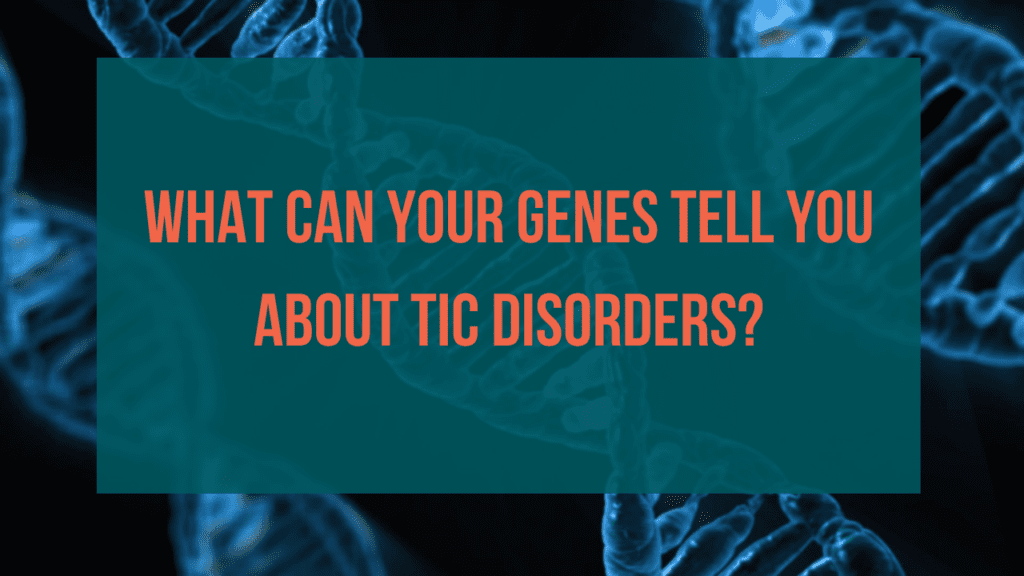Has your child just been handed a tic disorder diagnosis? They are experiencing tics and twitches and you don’t know what to do! Maybe you have questions about the genetic roots of your kid’s condition? I’m here to answer your questions and help ease some anxiety. I have tons of powerful information that may relieve, or at least clarify, some of your worries.
I want to help you explore the genetics behind tics disorders and what they mean for children who are affected by them. In addition, I want to make sure that parents have all the resources available to them when it comes to their kids and any medical conditions they might be experiencing – so read on!
Is there a gene that predisposes your child to tic disorders? In short, no! Although many genes have been studied, there is not a stand-alone gene that is influencing a tic.
I am sure you are wondering, “then why does genetics matter?”
When I look at genes, it’s not from the standpoint of “OMG, you’re going to get a disease.” Instead, I help you analyze your child’s genes to create a roadmap to guide you on what you need to remove and reinforce to help your child experience optimal health.
Nutrigenomics is a field that studies how our genes interact with our diets and environment; we then apply the information we learn to create targeted health strategies for you and your child.
Let’s take tic disorders as an example: tics can run in families, but you may also find that your child has a tic and no one else in the family does. This is where we can take your child’s individual genes and look at how diet, environment, and nutrient deficiency might be impacting tic symptoms.
For example, you have on and off switches for inflammation which has a direct impact on tics. When we look at your ability to turn inflammation on and off, we can see if your child might be predisposed to chronic aggressive inflammation. If that’s the case, we can refine diet and lifestyle to reduce inflammation. We can also look at your body’s ability to recycle cellular waste; if your child has poor cellular recycling, we can refine our diet and environment to improve cellular recycling. Nothing else is getting in when it comes to cellular waste; think of it as a water balloon. This can lead to nutrient deficiency as well as poor energy production.
Our genes can also tell us a lot about our need for certain nutrients and vitamins. For example, I see lots of tic disorders in kids with poor folate or B12 metabolism; this can be improved by supplementation and dietary adjustment.
Finally, we can look at genes and how they are impacted by environmental factors like toxins and even certain foods. When we use our genes as a roadmap, we can determine if your child is good at getting rid of toxins (think medications and chemicals) and if they have an increased need for probiotics, sensitivity to gluten/casein, and even histamines.
You want to look at many genes, not just one. They work together to complete all the processes in the body. So when working with clients, I look at 35-55 different genes that can help us create that roadmap.
When we look at genes we can actually tell if magnesium or B6 is a good option for your child. Plus genes will help us refine a natural approach to your child’s tic so you can avoid conventional treatments.
Genes help us look for what needs work in the body, and then we can see tic disorders with greater clarity. Approaching disorders is most effective when we understand our patient’s core issues and tailor a diet and lifestyle plan to help them.
If you want to know more, grab the tic disorders cheat sheet here.

